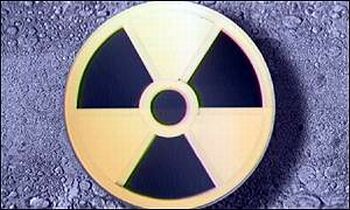
Publisher:
Bonnie King
CONTACT:
Newsroom@Salem-news.com
Advertising:
Adsales@Salem-news.com

~Truth~
~Justice~
~Peace~
TJP
Mar-14-2014 14:38

 TweetFollow @OregonNews
TweetFollow @OregonNews
Reactor Reax Top Stories - U.S. Nuclear Agency Hid Concerns, Hailed Safety Record as Fukushima Melted
Salem-News.com"Reactor Reax" is brought to you by Physicians for Social Responsibility.
 "Reactor Reax" is featured on www.NuclearBailout.org, a Web site maintained by Physicians for Social Responsibility. |
(WASHINGTON DC) - U.S. Nuclear Agency Hid Concerns, Hailed Safety Record as Fukushima Melted, NBC News, March 11, 2014. "In the tense days after a powerful earthquake and tsunami crippled the Fukushima Daiichi power plant in Japan on March 11, 2011, staff at the U.S. Nuclear Regulatory Commission made a concerted effort to play down the risk of earthquakes and tsunamis to America's aging nuclear plants, according to thousands of internal emails reviewed by NBC News. The emails, obtained via the Freedom of Information Act, show that the campaign to reassure the public about America's nuclear industry came as the agency's own experts were questioning U.S. safety standards and scrambling to determine whether new rules were needed to ensure that the meltdown occurring at the Japanese plant could not occur here."
Fukushima's Continuing Tragedy, New York Times (editorial), March 11, 2014. "Tuesday was the third anniversary of the triple disaster that struck the eastern Japanese prefectures of Iwate, Miyagi and Fukushima: the earthquake, tsunami and the nuclear power plant meltdowns in Fukushima. The catastrophe killed 15,884, with 2,636 still missing. The government's reconstruction efforts have been insufficient and painfully slow. There are still 270,000 refugees, of whom 100,000 live in makeshift housing. Since the disaster, more than 3,000 refugees have died from medical problems and suicide. In Fukushima prefecture, more people have died of disaster-related causes after the disaster (more than 1,650) than were killed in the disaster (1,607)."
Nuclear Plants In US Are In Bad Shape As More Than 10 Percent Earn "Degraded Level Of Performance" Or Worse Score, International Business Times, March 10, 2014. "The U.S. Nuclear Regulatory Commission (NRC) found in an annual assessment of the nation's nuclear power plants that 11 percent of the facilities operate at a 'degraded level of performance' or worse. Of highest concern are two facilities: the Browns Ferry 1 power plant in Alabama and the Fort Calhoun plant in Nebraska. The NRC ranked both in its fourth designation, having 'a safety finding of high significance' that will require higher oversight, according to the report released recently. The Fort Calhoun plant had only just restarted in December 2013 after flooding forced the plant to close for two years."
One lesson of the Fukushima nuclear meltdown is that Japan's culture needs to change, Public Radio International (PRI)/TheWorld, March 10, 2014. "In its months of interviews and inquiries, the commission found plenty of failures of design and performance behind the meltdowns. But, Funabashi says, the biggest problem the commission identified wasn't with technology — it was with the culture of Japan's 'nuclear village.' It was a culture, Funabashi says, in which 'regulators pretended to regulate, [and] operators pretended to be regulated.' Funabashi describes this 'nuclear village' as a closed world of nuclear power plant operators and regulators in Japan — impervious to public scrutiny and accountability within Japan, and resistant to innovations and new safety technologies from elsewhere."
A world awash in a nuclear explosive?, Center for Public Integrity, March 10, 2014. "A generation after Three Mile Island and Chernobyl, the world is rediscovering the attractions of nuclear power to curb the warming pollution of carbon fuels. And so a new industry focused on plutonium-based nuclear fuel has begun to take shape in the far reaches of Asia, with ambitions to spread elsewhere — and some frightening implications, if Thomas Cochran is correct. A Washington-based physicist and nuclear contrarian, Cochran helped kill a vast plutonium-based nuclear industrial complex back in the 1970s, and now he's at it again — lecturing at symposia, standing up at official meetings, and confronting nuclear industry representatives with warnings about how commercializing plutonium will put the public at enormous risk. Where the story ends isn't clear. But the stakes are large."
Cape Cod residents: Shutter Pilgrim nuclear plant, Associated Press, March 8, 2014. "Residents from across Cape Cod are planning to converge on the Statehouse to call on Gov. Deval Patrick to help shut down the Pilgrim nuclear power plant in Plymouth. Activists are tying their visit Monday to the eve of the third anniversary of the meltdowns at the Fukushima nuclear power plants in Japan. Residents say they want Patrick to press the Nuclear Regulatory Commission to shutter the plant. The commission voted in 2012 to relicense Pilgrim through 2032."
"Reactor Reax" is featured on www.NuclearBailout.org, a Web site maintained by Physicians for Social Responsibility.
 |
 |
 |
Articles for March 13, 2014 | Articles for March 14, 2014 | Articles for March 15, 2014
Quick Links
DINING
Willamette UniversityGoudy Commons Cafe
Dine on the Queen
Willamette Queen Sternwheeler
MUST SEE SALEM
Oregon Capitol ToursCapitol History Gateway
Willamette River Ride
Willamette Queen Sternwheeler
Historic Home Tours:
Deepwood Museum
The Bush House
Gaiety Hollow Garden
AUCTIONS - APPRAISALS
Auction Masters & AppraisalsCONSTRUCTION SERVICES
Roofing and ContractingSheridan, Ore.
ONLINE SHOPPING
Special Occasion DressesAdvertise with Salem-News
Contact:AdSales@Salem-News.com

googlec507860f6901db00.html



Terms of Service | Privacy Policy
All comments and messages are approved by people and self promotional links or unacceptable comments are denied.
[Return to Top]
©2025 Salem-News.com. All opinions expressed in this article are those of the author and do not necessarily reflect those of Salem-News.com.